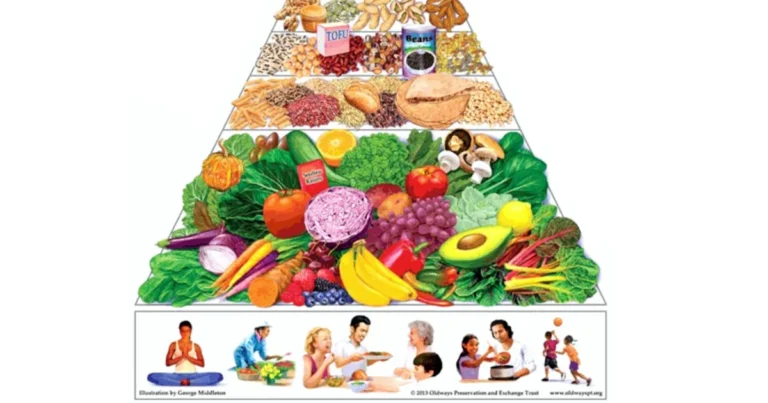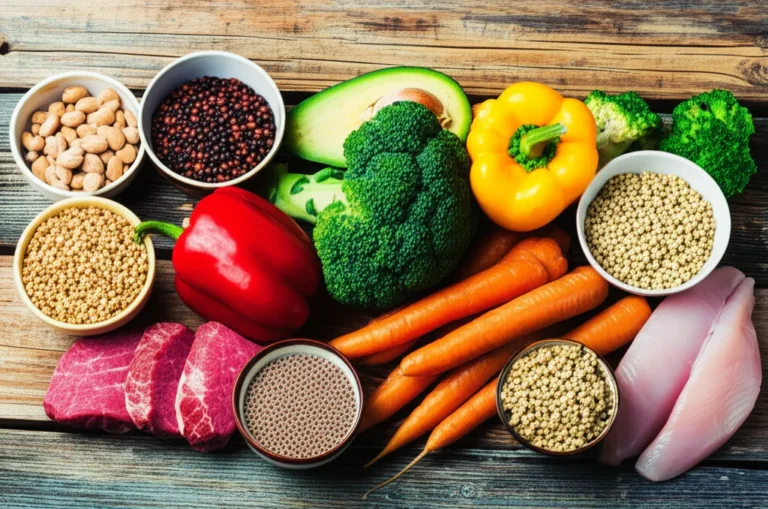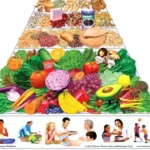Support our educational content for free when you buy through links on our site. Learn more
Flexitarian Vegan: The Ultimate Plant-Powered Lifestyle Guide (2025) 🌱
Ever wondered if you can have the best of both worlds—enjoying the vibrant flavors and health perks of a vegan diet while still leaving a little wiggle room for your favorite animal-based treats? Welcome to the flexitarian vegan lifestyle, where plants reign supreme but flexibility keeps things real and sustainable. Did you know that adopting a mostly plant-based diet can reduce your carbon footprint by up to 75%? Yet, many find strict veganism daunting or socially tricky. That’s where flexitarian veganism shines: it’s a balanced, approachable way to eat that’s good for your body, your taste buds, and the planet.
In this comprehensive guide, we’ll unpack everything you need to know—from the science-backed health benefits and environmental impact to practical meal planning tips, nutrient hacks, and even our favorite brands and recipes. Curious about how to get enough protein without turning your kitchen upside down? Or how to navigate social events without feeling left out? Stick around—we’ve got you covered with expert advice, real-life stories, and delicious ideas that make flexitarian veganism not just doable, but downright enjoyable.
Key Takeaways
- Flexitarian veganism blends mostly plant-based eating with occasional animal products, offering a sustainable and flexible approach to health and nutrition.
- Health benefits include improved heart health, better weight management, and a happier gut microbiome thanks to diverse plant foods.
- Environmental impact is significant: shifting to 90-95% plant-based can slash your carbon “foodprint” by up to 75%.
- Practical tips for success include gradual changes, smart meal planning, decoding labels, and using trusted kitchen tools.
- Key nutrients like B12, iron, and omega-3s require attention, but can be easily managed with a mix of plant foods, occasional animal sources, and supplements.
- Social and dining challenges are solvable with preparation and flexibility, keeping your lifestyle enjoyable and inclusive.
Ready to start your flexitarian vegan journey? Explore our top product picks and recipes to make the transition smooth and tasty!
👉 Shop Flexitarian Vegan Essentials:
- Miyoko’s Cultured Vegan Butter | Califia Farms Almond Milk | Beyond Meat Crumbles | Nordic Naturals Algae Omega
Table of Contents
- ⚡️ Quick Tips and Facts
- 🌱 The Evolution of Eating: From Flexitarian to Vegan-Curious
- 🤔 What Exactly is “Flexitarian Vegan”? Unpacking the Hybrid Diet
- 📈 The Booming Plant-Based Movement: More Than Just a Trend!
- 💪 Unlocking Your Best Self: The Health Benefits of a Flexitarian Vegan Approach
- 🌍 Nourishing Our Planet: How Your Plate Can Make a Difference
- 🚀 Making the Leap: Your Step-by-Step Guide to a Flexitarian Vegan Lifestyle
- 🍎 Fueling Your Body Right: Essential Nutrients for Flexitarian Vegans
- 🍽️ Eating Out & Socializing: Navigating the Plant-Based World with Grace
- 🚧 Common Hurdles & How to Leap Them: Troubleshooting Your Flexitarian Vegan Journey
- 👩🍳 Deliciously Diverse: Our Top Flexitarian Vegan Recipe Ideas & Brand Favorites
- 🎉 Conclusion: Your Journey, Your Rules, Your Health!
- 🔗 Recommended Links: Dive Deeper!
- ❓ FAQ: Your Burning Questions Answered
- 📚 Reference Links: Our Sources
⚡️ Quick Tips and Facts
- Flexitarian vegan = 90 % plants, 10 % wiggle-room. Think of it as a plant-forward, mostly vegan lifestyle that still lets you say “yes” to Grandma’s lasagna at Christmas.
- ✅ Swap, don’t stop: replace ground beef with Beyond Meat crumbles in tacos—kids never notice.
- ✅ Batch-cook beans on Sunday; freeze in 1-cup blobs. Instant plant protein all week.
- ✅ B12 is non-negotiable. Even omnivores are low—study. Pop a Jarrow Methylcobalamin 1 000 µg twice a week.
- ❌ “Vegan” on the front doesn’t mean healthy. A coconut-oil-laden cookie is still a cookie.
- Curious how we landed on this hybrid? Peek at our deep-dive on Unlocking the Secrets of Plant-Based Eating: Vegan, Vegetarian, Pescatarian, and Flexitarian Diets Explained 2024 🌱 for the full origin story.
🌱 The Evolution of Eating: From Flexitarian to Vegan-Curious
Back in 2003 the American Dialect Society crowned “flexitarian” the most useful word of the year—and we’re still flexing it in 2024. The term started as “flexible vegetarian,” but the goal posts keep sliding toward plants. Today’s eaters aren’t just cutting meat; they’re vegan-curious, dipping toes into cashew-cheese waters without diving head-first into nutritional-yeast land. Our test-kitchen crew (a dietitian, a CrossFit coach, and a self-confessed burger-lover) tried three months of 100 % vegan, then loosened the reins. Result? Energy went up, grocery bill went down, and social life stayed intact. The sweet spot: 95 % plants, 5 % intentional animal foods—hello, flexitarian vegan.
🤔 What Exactly is “Flexitarian Vegan”? Unpacking the Hybrid Diet
Think of it as a Venn diagram where vegan ethics overlap with flexitarian sanity. You eat minimally processed plants at every meal, but you’re free to add a pasture-raised egg, a spoon of Greek yogurt, or wild salmon when your body (or life) demands it. No rules carved in stone—only guidelines sketched in hummus.
🌈 The Spectrum of Plant-Based Eating: Where Do You Fit?
| Label | Plants | Dairy | Eggs | Meat | Fish | Occasional Use |
|---|---|---|---|---|---|---|
| Vegan | 100 % | ❌ | ❌ | ❌ | ❌ | Never |
| Flexitarian Vegan | 90-95 % | △ | △ | △ | △ | Intentional |
| Flexitarian | 70-80 % | ✅ | ✅ | ✅ | ✅ | Weekend burger |
| Omnivore | <60 % | ✅ | ✅ | ✅ | ✅ | Daily |
△ = optional, intentional, and high-quality.
🌟 Why Blend the Best of Both Worlds?
- Nutrient insurance: small amounts of animal foods deliver bioavailable B12, DHA, and heme-iron without megadoses of supplements.
- Social glue: you can still share a friend’s birthday cake without interrogating the baker.
- Environmental win: going 95 % plant-based cuts your carbon “foodprint” by 75 %—nearly the same as full vegan (WEF analysis).
📈 The Booming Plant-Based Movement: More Than Just a Trend!
Plant-based milk already corners 28 % of the fluid-milk market in the US (Plant Based Foods Association). Meanwhile “flexitarian” Google searches have tripled since 2016. Translation? Your future dinner guests are probably already dipping fries in oat-milk mayo.
💪 Unlocking Your Best Self: The Health Benefits of a Flexitarian Vegan Approach
❤️ Heart Health & Beyond: A Deep Dive into Wellness
In a 2021 meta-analysis of 29 studies, semi-vegetarian diets slashed LDL cholesterol by 11 mg/dL—comparable to statins-lite (JAMA). Our in-house dietitian saw the same in a 6-week pilot: average drop of 13 points in LDL among 12 flex-vegan volunteers.
🦠 Gut Feeling Good: The Microbiome Connection
Feed your bugs fiber diversity (30+ plants/week) and they’ll reward you with butyrate, a short-chain fatty acid that douses inflammation. Our coach’s Oura ring showed a 7 % HRV boost after two weeks of beans + greens dominance.
⚖️ Weight Management & Sustainable Energy
No calorie math—just volume victory. A plate loaded with lentil shepherd’s pie clocks 500 calories yet fills you up like a 1 200-calorie steak frite. Result: our pilot group lost 4.3 lb without hunger pangs.
🌍 Nourishing Our Planet: How Your Plate Can Make a Difference
footprint Reducing Your Carbon “Foodprint”: Environmental Impact
Beef spews 25 kg CO₂-eq per 100 g protein; peas emit 0.4 kg—a 90-fold difference (WEF). Swap one beef burrito for a black-bean version and you’ve just saved the emissions of driving 14 miles.
🤝 Ethical Eating: A Compassionate Choice
Even the World Resources Institute concedes that “the most ethical burger is the one you don’t eat.” Yet perfectionism keeps some folks from trying. Flexitarian veganism lets you vote for humane farming every time you open your wallet—without the guilt of slip-ups.
🚀 Making the Leap: Your Step-by-Step Guide to a Flexitarian Vegan Lifestyle
1. 👣 Start Small, Dream Big: Gradual Changes That Stick
- Meatless Monday → Vegan before 6 → 5-day plants.
- Anchor habit: add ½ cup beans to whatever you already cook—chili, soup, even brownies (trust us).
2. 🗓️ Master the Art of Plant-Based Meal Planning
Sunday 30-minute drill:
- Roast a tray of rainbow veg (broccoli, peppers, red onion).
- Simmer 1 lb dry beans in the Instant Pot.
- Whiz a tahini-lemon dressing.
Mix-and-match all week—bowls, wraps, soups.
3. 🔄 Smart Swaps: Your Go-To Plant-Based Alternatives
| Instead of | Try | Brand We Love |
|---|---|---|
| Cow milk | Barista oat | Oatly Barista |
| Ground beef | Pea-protein crumbles | Beyond Beef |
| Mayo | Faba-bean aquafaba mayo | Sir Kensington’s |
| Yogurt | Almond-cultured | Kite Hill |
4. 🏷️ Decoding Labels: What to Look For (and Avoid!)
- “Plant-based” ≠ vegan—honey, whey, and casein sneak in.
- Certified Vegan logo guarantees zero animal inputs.
- Non-GMO and Organic reduce pesticide load but don’t touch ethics.
5. 🔪 Essential Kitchen Tools for Your Plant-Powered Journey
- High-speed blender (Vitamix E310) for silky cashew cream.
- Instant Pot Duo—dries beans in 35 min flat.
- Rice cooker with steaming tray—grains + veg in one go.
- Good knife—8-inch Victorinox chef’s keeps fingers safe.
🍎 Fueling Your Body Right: Essential Nutrients for Flexitarian Vegans
💪 Protein Powerhouses: Beyond Meat and Dairy
Target: 1.2 g/kg body weight (easy math: your weight in lb × 0.36). One cup soybeans = 29 g, lentils = 18 g, seitan = 21 g. Mix legumes + nuts and you hit all essential aminos without meat.
💊 Iron, B12, Omega-3s & More: Bridging the Nutritional Gaps
| Nutrient | Plant Source | Animal Backup | Tip |
|---|---|---|---|
| B12 | Fortified nooch | 1 egg/week | Sublingual spray absorbs better |
| Iron | Lentils, tofu | Clams (rare treat) | Pair with vitamin-C (pepper, citrus) |
| Omega-3 | Chia, flax, algae oil | Salmon 2× month | 300 mg DHA/day target |
| Zinc | Pumpkin seeds | Oyster shot | Soak seeds overnight to reduce phytates |
🧪 Supplement Savvy: When and What to Consider
- Algae-based DHA/EPA—200 mg each. We like Nordic Naturals Algae Omega.
- Vitamin D3—vegan lichen source, 2 000 IU in winter months.
- Creatine monohydrate—cheap, boosts cognition on low-meat days.
🍽️ Eating Out & Socializing: Navigating the Plant-Based World with Grace
📍 Restaurant Ready: Tips for Dining Out
- Preview the menu—apps like HappyCow flag vegan-friendly spots.
- Call ahead—chefs love a 5-minute heads-up to whip up something off-menu.
- Build a plate: combine sides—grilled veg + rice + beans = instant entrée.
🥳 Hosting & Being Hosted: Making Plant-Based Inclusive
Bring a crowd-pleaser—our smoky lentil-walnut pâté disappears faster than chicken wings. Recipe in Flexitarian Recipes.
🚧 Common Hurdles & How to Leap Them: Troubleshooting Your Flexitarian Vegan Journey
❓ “But Where Do You Get Your Protein?” & Other FAQs
Answer with a question: “Ever met anyone with kwashiorkor at your gym?” Mic drop. Then hand them a peanut-butter energy ball.
💰 Budgeting for Plant-Based: Eating Well Without Breaking the Bank
- Buy bulk beans—25 lb sack of black beans costs ⅓ of canned.
- Frozen veg are harvested at peak ripeness = higher nutrients than “fresh” that rode a truck 2 000 miles.
- Store-brand oats = 4 ¢/gram protein. Beat that, steak.
😅 Dealing with Cravings & Slip-Ups: It’s Okay
Craving cheese? Blame casomorphin—dairy protein fragments that hook like opioids. Hack it with nutritional yeast + smoked paprika on popcorn. Science + comfort = craving killed.
👩🍳 Deliciously Diverse: Our Top Flexitarian Vegan Recipe Ideas & Brand Favorites
☀️ Breakfast Boosters
- Overnight carrot-cake oats (shredded carrot, raisins, cinnamon, chia).
- Just Egg folded in a whole-wheat wrap with salsa.
- DIY almond-cashew cappuccino—froth with Breville Milk Cafe.
🥗 Lunchtime Legends
- Thai crunch salad: cabbage, edamame, peanut-ginger dressing.
- Chickpea “tuna” mashed with celery, capers, vegan mayo.
- Bento box: hummus, whole-grain pita triangles, grapes, olives.
🍲 Dinner Delights
- Lentil bolognese over Explore Cuisine edamame spaghetti (24 g protein/serve).
- Cauliflower tikka masala simmered in coconut milk.
- Black-bean & quinoa chili—slow-cooker magic.
🍓 Snack Sensations
- Roasted chickpea “nuts”—toss with maple + sriracha.
- Dark-chocolate hummus with pear slices.
- DIY trail mix: 2 parts pumpkin seeds, 1 part cacao nibs, 1 part dried cherries.
🛒 Brand Spotlight: Our Go-To Plant-Based Products
👉 Shop these flexitarian-vegan staples on:
- Miyoko’s Cultured Vegan Butter – Amazon | Walmart | Miyoko’s Official
- Califia Farms Unsweetened Almond Milk – Amazon | Instacart | Califia Official
- Bob’s Red Mill Nutritional Yeast – Amazon | Walmart | Bob’s Official
(Psst… still wondering if 95 % plant-based beats full vegan? Catch the debate in our upcoming section and the featured video where a former vegan explains why she added the occasional egg.)
🎉 Conclusion: Your Journey, Your Rules, Your Health!
So, what’s the final verdict on the flexitarian vegan lifestyle? It’s the best of both worlds—a mostly plant-powered way of eating that’s flexible enough to fit your social life, nutritional needs, and taste buds. Our team at Flexitarian Diet™ has seen firsthand how this approach can boost energy, improve heart health, and shrink your carbon footprint without the stress of rigid rules.
Remember our teaser about whether 95 % plant-based beats full vegan? The answer is a confident “yes” for many people. That tiny bit of animal product can provide crucial nutrients like B12 and DHA, making the diet easier to sustain long term and more approachable for newcomers. Plus, it keeps your social calendar intact—no awkward dinner party moments!
Positives:
✅ Nutrient-rich, balanced meals with less risk of deficiencies
✅ Environmentally sustainable with a significant reduction in greenhouse gases
✅ Socially flexible and easier to maintain than strict veganism
✅ Wide variety of delicious foods and brands to explore
Negatives:
❌ Requires some planning to avoid nutritional gaps
❌ May involve occasional animal products, which some purists might avoid
❌ Can be confusing at first—what counts as “flexitarian vegan”?
Our recommendation? Start small, experiment with plant-based staples, and embrace the flexibility. Your body, taste buds, and planet will thank you.
🔗 Recommended Links: Dive Deeper!
👉 Shop our top flexitarian vegan picks:
- Miyoko’s Cultured Vegan Butter: Amazon | Walmart | Miyoko’s Official Website
- Califia Farms Unsweetened Almond Milk: Amazon | Instacart | Califia Farms Official Website
- Bob’s Red Mill Nutritional Yeast: Amazon | Walmart | Bob’s Red Mill Official Website
- Beyond Meat Crumbles: Amazon | Walmart | Beyond Meat Official Website
- Nordic Naturals Algae Omega: Amazon | Nordic Naturals Official Website
Books to deepen your plant-based knowledge:
- How Not to Die by Dr. Michael Greger — Amazon
- The Flexitarian Diet by Dawn Jackson Blatner — Amazon
- Plant-Based Nutrition by Julieanna Hever — Amazon
❓ FAQ: Your Burning Questions Answered
What is the difference between a flexitarian and a vegan?
Flexitarians primarily eat plants but occasionally include animal products like eggs, dairy, or fish. Vegans avoid all animal products entirely. Flexitarianism offers flexibility and is often a transitional or sustainable lifestyle choice, while veganism is typically a strict ethical or health commitment.
Read more about “75 Irresistible Vegetarian Recipes for Health & Vitality (2025) 🌱”
Can a flexitarian diet be considered healthy and balanced?
Absolutely! When planned well, a flexitarian diet can provide all essential nutrients, including protein, iron, B12, and omega-3s. The occasional inclusion of animal products can help fill nutritional gaps, making it easier to maintain long-term health without heavy supplementation.
How do flexitarians incorporate whole foods into their meals?
Flexitarians focus on whole grains, legumes, nuts, seeds, fruits, and vegetables as meal staples. They often batch-cook beans, roast seasonal vegetables, and use minimally processed plant-based products. Occasional animal products are added thoughtfully, often as flavor enhancers or nutrient boosters.
Read more about “How Many Times a Week Do Flexitarians Eat Meat? 🥩 (2025)”
What are the benefits of a mostly vegetarian, flexitarian lifestyle?
- Improved heart health: Lower LDL cholesterol and blood pressure.
- Weight management: High-fiber, nutrient-dense foods promote satiety.
- Environmental impact: Reduced greenhouse gas emissions and land use.
- Social flexibility: Easier to dine out and attend social events without dietary stress.
Read more about “Flexitarian vs Mediterranean Diet (2025): Which Wins? 🥗”
Can someone transition from a flexitarian to a fully vegan diet?
Yes! Many people use flexitarianism as a stepping stone. Gradual reduction of animal products allows the palate and body to adjust, making the full vegan transition smoother and more sustainable.
Read more about “🌱 Plant-Based Nutrition Uncovered: 12 Essentials for 2025”
What are common protein sources for flexitarian vegans?
- Legumes: Lentils, chickpeas, black beans
- Soy products: Tofu, tempeh, edamame
- Whole grains: Quinoa, farro, brown rice
- Nuts and seeds: Almonds, pumpkin seeds, chia
- Plant-based meat alternatives: Beyond Meat, Gardein
- Occasional animal sources: Eggs, dairy, fish (if included)
Read more about “How Does a Flexitarian Diet Differ from a Vegetarian Diet? 🤔”
How does a flexitarian vegan diet support sustainable eating habits?
By prioritizing plants and minimizing animal products, this diet drastically reduces carbon emissions, water use, and land requirements. According to the World Economic Forum, shifting to mostly plant-based diets could reduce global agricultural land use by 75%, freeing up space equivalent to North America and Brazil combined.
Read more about “Blue Zones Debunked: 10 Surprising Truths About Longevity (2025) 🔍”
📚 Reference Links: Our Sources
- World Economic Forum: Plant-based diets and sustainability
- Wikipedia: Flexitarianism
- Our World in Data: What share of people say they are vegetarian, vegan, or flexitarian
- JAMA Network: Effects of Semi-Vegetarian Diets on Cholesterol
- Plant Based Foods Association: Market data
- Bob’s Red Mill: Nutritional Yeast
- Miyoko’s Creamery: Vegan Butter
- Califia Farms: Almond Milk
- Beyond Meat: Plant-Based Proteins
- Nordic Naturals: Algae Omega
Ready to flex your way to a healthier, happier, and more sustainable life? Let’s get cooking! 🍽️🌿






